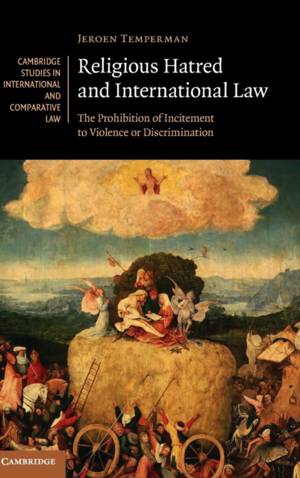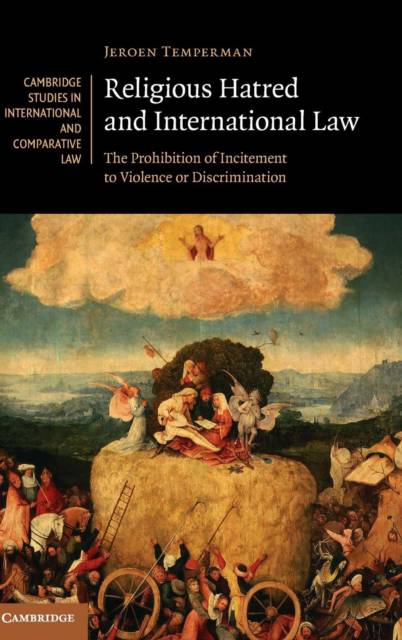
Bedankt voor het vertrouwen het afgelopen jaar! Om jou te bedanken bieden we GRATIS verzending (in België) aan op alles gedurende de hele maand januari.
- Afhalen na 1 uur in een winkel met voorraad
- In januari gratis thuislevering in België
- Ruim aanbod met 7 miljoen producten
Bedankt voor het vertrouwen het afgelopen jaar! Om jou te bedanken bieden we GRATIS verzending (in België) aan op alles gedurende de hele maand januari.
- Afhalen na 1 uur in een winkel met voorraad
- In januari gratis thuislevering in België
- Ruim aanbod met 7 miljoen producten
Zoeken
Religious Hatred and International Law
The Prohibition of Incitement to Violence or Discrimination
Jeroen Temperman
€ 149,95
+ 299 punten
Uitvoering
Omschrijving
The UN International Covenant on Civil and Political Rights obliges state parties to prohibit any advocacy of religious hatred that constitutes incitement to discrimination or violence. This book traces the origins of this provision and proposes an actus reus for this offence. The question of whether hateful incitement is a prohibition per se or also encapsulates a fundamental 'right to be protected against incitement' is extensively debated. Also addressed is the question of how to judge incitement. Is mens rea required to convict someone of advocating hatred, and if so, for what degree of intent? This analysis also includes the paramount question if and to what extent content and/or context factors ought to be decisive. The author extensively engages with comparative domestic law and compares the workings of the UN Human Rights Committee with those of the UN Committee on the Elimination of Racial Discrimination and the European Court of Human Rights.
Specificaties
Betrokkenen
- Auteur(s):
- Uitgeverij:
Inhoud
- Aantal bladzijden:
- 438
- Taal:
- Engels
- Reeks:
- Reeksnummer:
- nr. 118
Eigenschappen
- Productcode (EAN):
- 9781107124172
- Verschijningsdatum:
- 9/10/2015
- Uitvoering:
- Hardcover
- Formaat:
- Genaaid
- Afmetingen:
- 152 mm x 229 mm
- Gewicht:
- 752 g

Alleen bij Standaard Boekhandel
+ 299 punten op je klantenkaart van Standaard Boekhandel
Beoordelingen
We publiceren alleen reviews die voldoen aan de voorwaarden voor reviews. Bekijk onze voorwaarden voor reviews.









